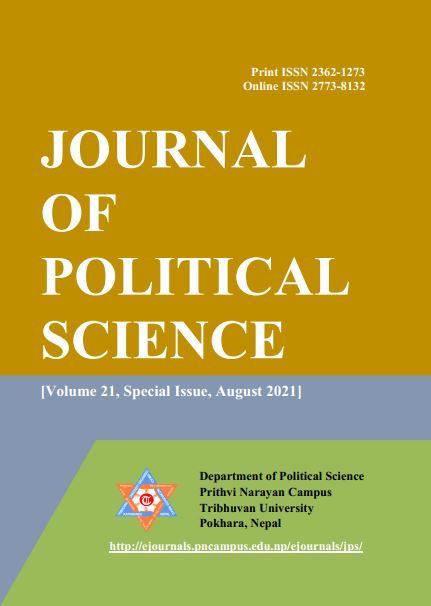Structural Determinants of Democratic Consolidation and Nepal’s Loktantra Since 2017
DOI:
https://doi.org/10.3126/jps.v21i1.39281Keywords:
Loktantra, structural determinants, non-majoritarian democracy, modernizationAbstract
Despite frequent political changes, democratic consolidation is not a popular question among the researchers of democracy in Nepal. This article aims to connect the theoretical discussion of consolidation of democracy, mostly focusing on the structural factors and Nepali Loktantra. Two findings of this study are particularly important for the discussion of the consolidation of Loktantra in Nepal. First, the macro structural factors – e.g., economic modernization, regime type, and party -system – make pessimistic predictions on future of Nepali democracy. In other words, the macro structural conditions are unfavorable for the consolidation of the democracy in contemporary Nepal. Second, procedural dimensions of the democracy are insufficient to define Nepali Loktantra. The newly adopted regime has attempted to merge few components of non-majoritarian democracy too. We need more critical evaluation on the characteristics of Nepali Loktantra. If it is different with a procedural democracy, its relation with socio-economic structure also should be different.
Downloads
Downloads
Published
How to Cite
Issue
Section
License
Copyright (c) 2021 Department of Political Science, Prithvi Narayan Campus

This work is licensed under a Creative Commons Attribution-ShareAlike 4.0 International License.




